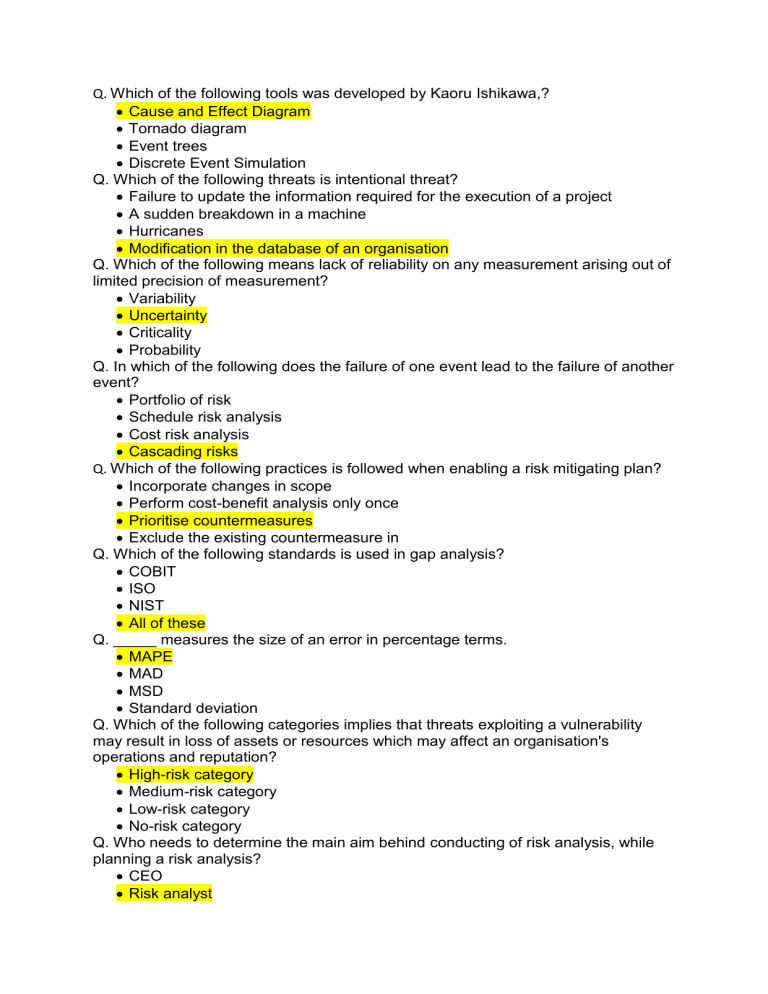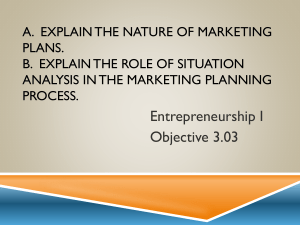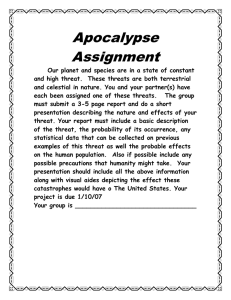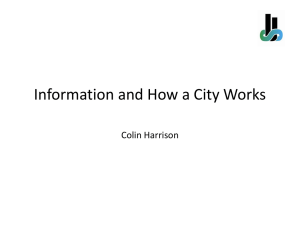
Q. Which of the following tools was developed by Kaoru Ishikawa,? Cause and Effect Diagram Tornado diagram Event trees Discrete Event Simulation Q. Which of the following threats is intentional threat? Failure to update the information required for the execution of a project A sudden breakdown in a machine Hurricanes Modification in the database of an organisation Q. Which of the following means lack of reliability on any measurement arising out of limited precision of measurement? Variability Uncertainty Criticality Probability Q. In which of the following does the failure of one event lead to the failure of another event? Portfolio of risk Schedule risk analysis Cost risk analysis Cascading risks Q. Which of the following practices is followed when enabling a risk mitigating plan? Incorporate changes in scope Perform cost-benefit analysis only once Prioritise countermeasures Exclude the existing countermeasure in Q. Which of the following standards is used in gap analysis? COBIT ISO NIST All of these Q. _____ measures the size of an error in percentage terms. MAPE MAD MSD Standard deviation Q. Which of the following categories implies that threats exploiting a vulnerability may result in loss of assets or resources which may affect an organisation's operations and reputation? High-risk category Medium-risk category Low-risk category No-risk category Q. Who needs to determine the main aim behind conducting of risk analysis, while planning a risk analysis? CEO Risk analyst Department manager General manager Q. Which of the following letters is Used to denote pessimistic time? A B M P Q. ______ used in the field of medicine to check the behaviour of clinical risk models. Cause and effect diagram Decision tree Influence diagram ROC Curve Q. The probability that the risks faced by Adobe will actually materialize will be: Between 0 and 1 Between 1 and 2 Between 2 and 3 Between 3 and 4 Q. Which of the following techniques carries out numerous experiments taking possible input values to determine the corresponding output values for that experiment? What if Scenario Simulation Regression analysis None of These Q. If the variables move in opposite direction, what is the correlation coefficient. 0 1 -1 Between 1 and 2 Q. Which of the following statements is true for tornado diagram? The length of a bar signifies the level of sensitivity of the objective of a project to a risk The risks are presented in a ascendent The beginning of a bar indicates variable The risks are presented in a descending order, with the variable having the maximum impact on the top and the one having the minimum impact at the bottom. Q. The boundaries of a project are defined in _____ Project plan Project scope Project analysis Project report Q. What is the degree of quadratic objective function? 1 3 2 4 Q. Which of the following types of exploit exploits system's vulnerability without requiring any prior access to the vulnerable system? Local exploit Global exploit Remote exploit Technical exploit Q. Which of the following letter denotes forecasting error? F A E R Q. Which of the following tools was developed by kaoru Ishikawa? Cause and Effect Diagram Tornado diagram Event trees Discrete Event Simulation Q. What was Adobes' major issue in terms of getting consumers' insight? Lack of good quality data Unavailability of a holistic view Problems in cross-functional collaborations All of these Q. The results and recommendations of the BIA are then reported to _____ Employees Suppliers Higher authorities Clients Q. What is the weaknesses in a project that makes it prone to risk is called? Threat Vulnerability Exploit Danger Q. Which of the following analysis is conducted by a business to identify the gap between current state and future state? SWOT analysis Gap analysis Business impact analysis Customer analysis Q. Which of the following method does not reflect the level of risk? Single-point estimate Three-point estimate Two-point estimate Zero-point estimate Q. Which of the following sensitivity measures/indices ascertains the relative importance of an activity? Criticality Index Cruciality Index Significance Index Schedule Sensitivity Q. What is the risk related to ruling political party is called? Technical risk External risk Political risk Management risk Q. The type of data that Adobe requires for better management of its risk can be: Qualitative data Quantitative data Both qualitative and quantitative da None of these Q. Which of the following methods was invented by Olaf Helmer and Norman Dalkey of the RAND Corporation in the 1950s for the US Air Force to predict the impact of technology on warfare? Expert judgement method Delphi method Moving averages method Sales force composite method Q. ________ used in the field of medicine to check the behaviour of clinical risk models. Cause and effect diagram Decision tree Influence diagram ROC Curve Q. How can organisation check if the failure of a single server does not affect the performance of other servers? By measuring the load By adding a new server By removing an existing serve All of these Q. Which of the following is a possible reason for project delay? Loss of goodwill Burden of additional costs Non-availability of quality resources Taxation Q. Which of the following means lack of reliability on any measurement arising out of limited precision of measurement? Variability Uncertainty Criticality Probability Q. Which of these is related to Market Risk? Interest Rate Production Employees Advertisement Q. Cost of design is an example of _____ costs. Indirect Direct Miscellaneous All of these Q. Which of the following categories implies that threats exploiting a vulnerability may result in loss of assets or resources which may affect an organisation's operations and reputation? High-risk category Medium-risk category Low-risk category No-risk category Q. What are the are the limitations associated with budget constraints, time, and access to information in risk-based approach called? Uncertainties Certainties Frame conditions Consequences Q. Which of the following methods assumes that what happened in the immediate past will happen in the immediate future as well? Moving averages method Exponential smoothing methods Trend projection method Naive method Q. Which of the following is a part of the CBA report? Details of the threat/vulnerability pair that is Recommended countermeasure to mitig Likelihood percentage and impact scor All of these Q. Which of the following represents the value placed exactly at the centre of the distribution series? Mean Median Mode Variance Q. Which of the following should be implemented which record all the changes made to the document and maintain all its versions? Training Version control Physical controls Technical controls Q. In ______________ the best likely estimate of each input variable is used to determine the outcome of the analysis. Financial management Risk analysis Risk mitigation Budgeting Q. Which of the following method does not reflect the level of risk? Single-point estimate Three-point estimate Two-point estimate Zero-point estimate Q. Which of the following indicates the combined effect of severity, occurrence, and detection? Risk assessment number Risk log Risk priority number Risk criticality level Q. Which of the following shapes is used to depict a function in an influence diagram? A rounded rectangle A rectangle An oval A hexagon Q. Which of the following statements is true about milestone? It depicts interdependencies between the milestones. It reflects uncertainty It does not provide the schedule of a project in a clear and concise manner The chart may become complicated for a project having a large number of milestones Q. What is process of process of bringing the steel to an optimal state by using a disciplined heating cooling schedule called? Extraction Simulation Annealing Engineering Q. Which of the following is a contract between a service provider and a customer defining the level of service to be provided? Service level agreement Legal agreement Buyer's level agreement Relationship development agreement Q. In a decision tree, decisions are represented by _____ Squares Rectangles Circles Pentagons Q. Which of the following standards is used in gap analysis? COBIT ISO NIST All of these Q. Adding a password to a system, making additions to project Scope are examples of ________ Modification Interception Fabrication Interruption Q. Which of the following constraints puts the upper limit on some function of a decision variable? == ≤ = ≥ Q. The standard deviation of any distribution is always Negative zero Positive 1 Q. Which of the following steps of the management of vulnerability involves determining of the severity of the impact when vulnerabilities are exploited by threats? Discover Assess Report Verify Q. Which of the following helps project managers to determine dness of the countermeasure by comparing its costs benefits? Investment analysis SWOT analysis Cost-benefit analysis Gap analysis Q. What is the weaknesses in a project that makes it prone to risk? Threat Vulnerability Exploit Danger Q. Which of the following should be implemented which record all the changes made to the document and maintain all its versions? Training Version control Physical controls Technical controls Q. What type of assumptions contradict the major principle of risk analysis, which is to provide an unbiased report? Conservative Perceptive Pro-active Preventive Q. Which of the following categories of NSUAP describes the sources of the numeral or its production process? Assessment Numeral Pedigree Spread Q. Which of the following contains historical data that can be used to create a list of potential risks for the current project? Risk registers Risk repository Checklists Balance sheets Q. ______ is the maximum possible time required to complete the activities of the projects. Optimistic time Pessimistic time Most likely time Unlikely time Q. Which of the following indicates the combined effect of severity, occurrence, and detection? Risk assessment number Risk log Risk priority number Risk criticality level Q. What is the document created during the early stages of a project to log potential risks in a new project called? Risk plan Risk register Risk log Risk register and Risk Le Q. Which type of relationship is shown by ROC Curve? Positive Inverse Zero Negative Q. Products going from off-line mode to on-line mode pose which kind of risk? Financing Risk Operating Risk Market Risk Systematic Risk Q. The sequence of the scheduled activities that takes the longest time to complete is known as the_______. Project Schedule Critical path Project plan Scope of the project Q. Which of the following is the most common type of spreadsheet error? inappropriate use of basic operators Input of wrong data Incorrect representation of variables Accidental errors Q. Which of the following is not a responsibility of risk analysis team? Identify and acknowledge the threat Evaluate the probability of a risk's Manage the least prioritised risk Review the project activities, re-estimate existing risks, Q. In which step of the process of creating the next generation of solutions, a random gene is inserted in an offspring to maintain the diversity in population? selection Mutation Crossover Rejection Q. In risk analysis ______ is determined on the basis of consequences of failure. Probability Level of criticality Chances of success Probability and Level of Critici Q. Which of the following should be maintained within the allocated budget? Projected profits Projected losses Costs Changes in scope Q. Which of the following is the main source of uncertainty? Abundance of information Measurement error Conflicting nature of information Lack of information or data Q. In which century did Charles Darwin gave the theory of evolution? Seveteenth century Mid nineteenth century Mid eighteenth century Sixteenth century Q. Which of the following is a part of the CBA report? Details of the threat/vulnerability pair that is to be mitigated Recommended countermeasure to mitigate risk Likelihood percentage and impact score of the threat/vulnerability All of these Q. Which of the following statements is true? The planning of risk analysis ends with the problem definition The first question that any risk analyst needs to ask, why to identify the risks While planning a risk analysis, an analyst needs to determine the main aim behind conducting of analysis Risk analysis should be carried just once in a b… Q. Who assimilates the information received from the questionnaires and develops the copies of the information received in Delphi technique? Manager Organiser Departments head Facilitator Q. Which of the following issues can affect the perception of a project to the neighbouring public? Legal issues Political issues Social issues Financial issues Q. _______ can help project managers to ascertain the best solutions to mitigate project risks. P- | Matrix Iteration Feasibility test Threat-Likelihood-Impact Matr Q. Which of the following values describes the location of the distribution? Mode Median Standard deviation Mean Q. In which of the following categories of threats does project data become unavailable or unusable or get destroyed? Interception Modification Interruption Fabrication Q. Which of the following categories implies that threats exploiting a vulnerability may result in loss of assets or resources which may affect an organisation's operations and reputation? High-risk category Medium-risk category Low-risk category No-risk category Q. If you enter a wrong formula, what type of spreadsheet errors have you made? Inappropriate use of basic operators Incorrect representation of variables Accidental errors Input of wrong data Q. Which of the following is the smallest level of a deliverable which cannot be broken down further. Work group Work package Project timelines Work deliverable Q. Which of the following is not a responsibility of risk analysis team? Identity and acknowledge the threats of every within a project Evaluate the probability of a risk's occurrence Manage the least prioritised risks only Review the project activities, review status identified risks, re-estimate existing risks, and new ones Q. What type of skills must be presented in a risk analyst to understand the financial aspect of the risk and work on Financial tools. Decision-making skills Industry and market knowledge Negotiation skills Financial acumen Q. Which of the following statements is true about the moving/ forecasting method? They cannot be modified for time series with They can be easily adjusted for past errors They cannot be easily modified for making future They are not ideal for situations where prepared Q. Which of the following can be used to plot trend plots? Cumulative percentiles Mean Standard deviations All of these Q. What are the are the limitations associated with budget constraints, time, and access to information in risk-based approach called? Uncertainties Certainties Frame conditions Consequences Q. ______ measures the size of an error in percentage terms. MAPE MAD MSD Standard Deviation Q. Which of the following refers to adjusting the project schedule according to the availability of resources? Resource levelling Resource scheduling resource allocation All of these Q. Which of the following contains historical data that can be used to create a list of potential risks for the current project? Risk registers Risk repository Checklists Balance sheets Q. Which of the following can be a result of threats in a project? Loss of confidentiality Loss of integrity Loss of availability of required re All of these Q. In risk analysis, ________ is determined on the basis of consequences of failure. Probability Level of criticality Chances of success Probability and Level of Criticality Case Study: Q. What was Adobes major issue in terms of getting consumers insight? Lack of good quality data Unavailability of a holistic view Problems in cross-functional collaboration All of these Q. The type of data that Adobe requires for better management of its risk can be: Qualitative data Quantitative data Both qualitative and quantitative data None of these Q. The probability that the risks faced by Adobe will actually materialize will be; Between 0 and I Between 1 and 2 Between 2 and 3 Between 3 and 4 Q. Which of the following provide the probability statements which are essential in the decision making process? Mean Relative measures of spread Cumulative percentiles Median Q. What is the price of the product paid by an organisation for developing or implementing countermeasures called? Initial purchase cost Facility cost. Training cost Direct cost Q. In which of the following types of risk, uncertainties in the cash flow of a business are dealt with? Strategic risk Financial risk Operational risk Credit risk Q. Which of the following methods of forecasting assumes that the trend is linear through the historical data points? Trend projection method Double exponential smoothing The single exponential smoothin Moving averages method Q. What are the are the limitations associated with budget constraints, time, and access to information in risk-based approach called? Uncertainties Certainties Frame conditions Consequences Q. In which of the following categories of threats does project data become unavailable or unusable or get destroyed? Interception Modification Interruption Fabrication Q. Which of the following statements is true? The infrastructure of a projects does not require to planned at an early stage The infrastructure remains same for all type of projects. In the absence of adequate infrastructure, ther be major delays in the completion of a project. It is the sole responsibility of the project man plan and arrange the required infrastructure throughout the execution of a project. Q. Which of the following helps businesses to helps to calculate the completion time of the entire project. Cost risk analysis Schedule risk analysis Cost breakdown structure All of these Q. What type of assumptions contradict the major principle of risk analysis, which is to provide an unbiased report? Conservative Perceptive Pro-active Preventive Q. What sort of data is income? Ratio Interval Ordinal Nominal Q. Which of the following helps businesses to helps to calculate the completion time of the entire project. Cost. risk analysis Schedule risk analysis Cost breakdown structure All of these Q. In ________ , the best likely estimate of each input variable is used to determine the outcome of the analysis. Financial management Risk analysis Risk mitigation Budgeting Q. Which of the following calculates the difference between the squares of the errors? MAPE MAD MSD Correlation coefficient Q. Which of the following is a technique used to evaluate potential financial, safety, regulatory, legal contractual and reputational effect of risk on business operations? Business planning Business impact analvsis SWOT analysis Customer analysis Q. Under which group, Solver add-in option can be found on the Data tab in Microsoft Excel? Forecast Sheet Analyze Outline Data tools Q. Which of the following practices is followed when enabling a risk mitigating plan? Incorporate changes in scope Perform cost-benefit analysis only Prioritise countermeasures Exclude the existing countermeasure Q. In which type of approach, the initial word of WBS element would comprise a verb, such as construct, make, design and test? Noun-type approach Verb-type approach Organisational approach Functional approach Q. What is the degree of quadratic objective function? 1 3 2 4 Q. Which of the following components of linear programming is also known as a coefficient or constant? Feasibile region Parameter Linearity Constraint Q. While creating a business plan, a bank identifies that the opportunity is risky. Therefore, it decides not to pursue it. What type of risk management options is adopted by the bank? Avoid the risk Accept the risk Control the risk Transfer the risk Q. _____ is an exploit in which multiple systems access the bandwidth or resources of a targeted system, thereby blocking its normal traffic. SQL injections Distributed denial of service Denial of service All of these Q. Which of the following methods was invented by Olaf Helmer and Norman Dalkey of the RAND Corporation in the 1950s for the US Air Force to predict the impact of technology on warfare? Expert judgement method Delphi method Moving averages method Sales force composite method Q. Which of the following statements is true for tornado diagram? The length of a bar signifies the level The risks are presented in a ascent The beginning of a bar indicates The risks are presented in a d Q. Which of the following statistical tools plots two variables along horizontal and vertical axes? Receiver Operating Characteristic Scatter Plot Tornado diagram Pie chart Q. _________ is the maximum possible time required to complete the activities of the projects. Optimistic time Pessimistic time Most likely time Unlikely time Q. Which of the following estimates is the shortest possible time within which the project can be completed? Optimistic time Pessimistic time Most likely time Critical time Q. Which of the following methods is also known as the grassroots approach? consumer market survey method Expert judgement method Sales force composite method Delphi method Q. Which of the following statements is true End-to-and security is not required to be installed on the systems and devices used in project management. Managing threat is the sole responsibility of a project manager The CEO of the company must monitor the environment regularly to identify potential threats that are likely to impact a project. Access to the systems must only be given to authorised personnel. Q. Which of the following methods is used to solve LP problems in Microsoft Excel's Solver? SUMPRODUCT Simplex LP GRG Linear GRG Nonlinear Q. Which of the following is the most common type of spreadsheet error? Inappropriate use of basic operators Input of wrong data Incorrect representation of variables Accidental errors Q. Which of the following is a financial source of risk Goodwill loss Poor product or service quality Change in the ruling party Stock market fluctuations






